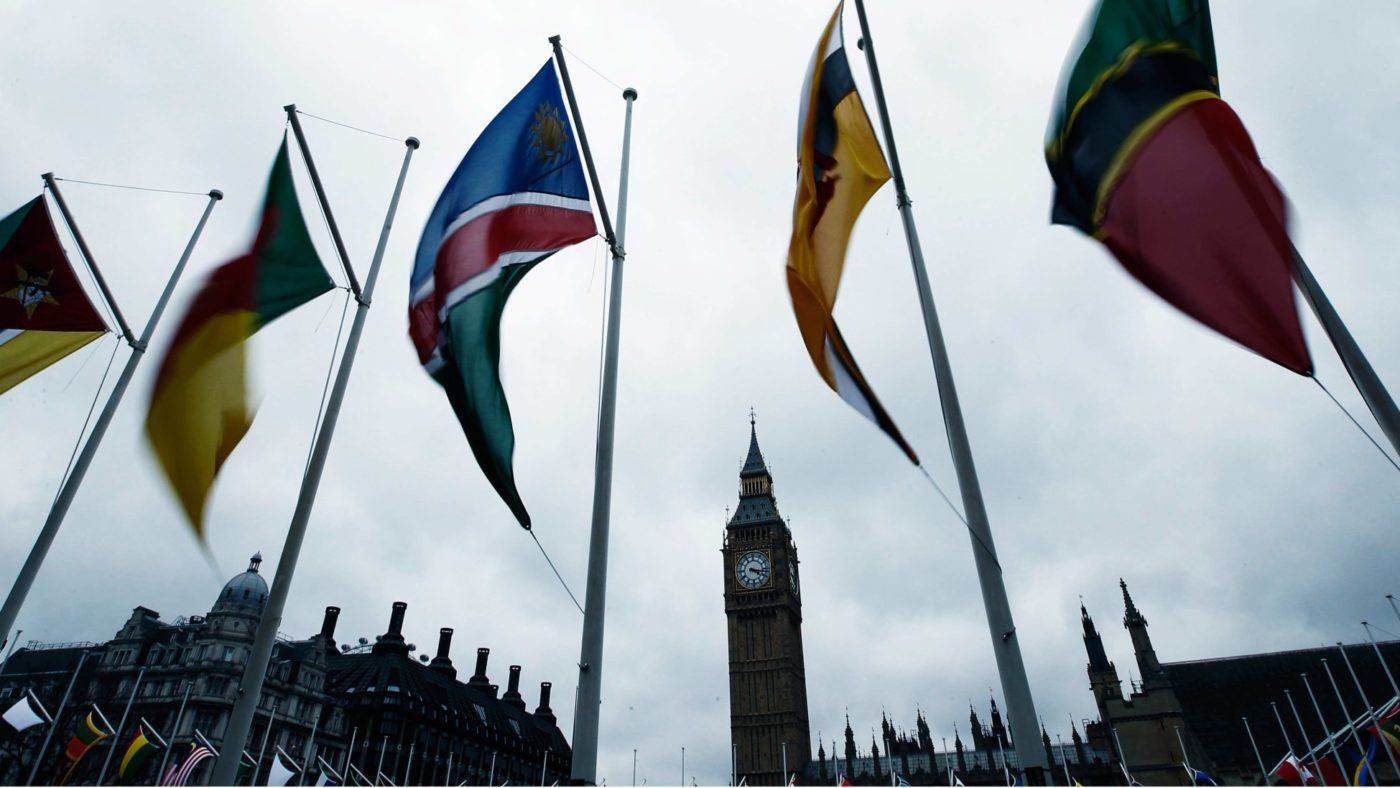Some people ask what the point was of the Commonwealth Trade Ministers meeting here in London last week – the first ever. After all the Commonwealth is not a trade bloc and never will be. What interest could the UK have in such a disparate group?
Such doubters miss an absolutely fundamental point.
What they were, and are, ignoring is that the nature of global trade has changed in the last decade- radically, fundamentally and disruptively, and is still doing so – fast.
The spread of almost total and continuous connectivity and the plummeting cost of communications and information transfer inside global value chains has utterly altered the world trade pattern, producing a new wave of globalisation which demands new kinds of networks and pushes old trade bloc thinking into increasing irrelevance. In effect, production has become largely internationalised, with the separate stages and processes spread between different countries. Gone are the simple days when one country made a product and exported it to another.
Mckinsey’s calculates that the soaring trade flows of data and information connecting up this transformed world of fragmented and dispersed production actually now generate more economic value than the whole of global goods trade- a crucial shift for an economy like the UK,with 80 per cent of its GDP coming from services.
These are conditions in which like-minded countries,with minimum language and culture barriers, and maximum similarities in legal and commercial procedures, are bound to be the winners. By luck, rather than by good judgement or planning, the modern Commonwealth network fits like a glove on to this new pattern and framework.
Add in the fact that over the last two decades or so there has been a staggering shift of almost 20 per cent of world GNP away from the G7 and the West to a number of developing countries, bought about as companies have sourced out components and stages of their production processes to lower wage cost areas.
Add,too, the colossally expanded dominance of China trade in the supply chain nexus, as the One Belt, One Road programme opens up Central Asia, and it begins to be obvious just where trade strategies should be taking us: towards the closest possible ties with our friends, old and new, in Asia and Africa.
Of course the Commonwealth network is not the only beneficiary of this new trade landscape. But with English as the working language, with dozens of Commonwealth-wide professional links, its common legal systems, its shared values, with its network of 530 Universities operating within a linked system and with its ferment of digital exchanges of deals and initiatives expanding daily, it cannot but be the ideal and superbly fertilised seed bed in which both trade and investment of every sort are bound to flourish.
Two further trade enhancing prospects now open out. First, the Commonwealth network has a gateway role to the other major growth markets, notably China ,where even now, for example, the Hong Kong connection remains invaluable. Second, there is no reason why groups of nations within the Commonwealth should not form plurilateral free-trade groupings, which others can join later.
One such grouping, Australia, New Zealand, the UK (after Brexit) and Singapore, was put forward at the Trade Ministers’ gathering. Endless possibilities open out. Existing WTO rules not only permit but encourage this kind of trade agreement. The newly launched, operative as from now, WTO Trade Facilitation Agreement offers still further encouragement and opportunities for open and free trade for everyone.
So many people have been busy insisting that trading under WTO rules would be a catastrophe and a disaster for the UK that the hugely improved WTO conditions for handling of both goods and services trade flows across borders seem to have passed them by. It is high time the debate returned to reality in this area. This is now the system under which most countries, including the most successful exporters into the EU market, operate quite happily.
All this is what is bringing Commonwealth Trade Ministers together in a manner which would have been inconceivable a decade ago. Unsurprisingly, it is also attracting interest in the Commonwealth “club” from a growing number of countries outside who would like to be associated with it in some way, one striking example, among several, being the Republic of Ireland.
Meanwhile, for the UK the opportunities and prospects offered by expanding consumer markets in the larger Commonwealth countries are becoming especially attractive and important. Of course they are no substitute for continued access to the EU Single Market – which is available to all non-EU countries and which, contrary to much confused comment, will be fully available to the UK, although possibly with some special terms added.
The Head of the Commonwealth, HM The Queen,with more percipience than many of her ministers, has described the modern Commonwealth as “in many ways the face of the future”.
The description,and the prediction, are both right and far-sighted. It could be said that while the recent London assembly of Trade Ministers, and the planned Commonwealth Summit to which it leads up next year, are about the future, the negotiations which are about to commence in Brussels to escape the clutches of the EU are about the past.
Quite soon all this may dawn on the policy experts and the commentariat – and show them where our real trade priorities now lie.


